Carnival returns to St Pauls, with a homage to its heritage
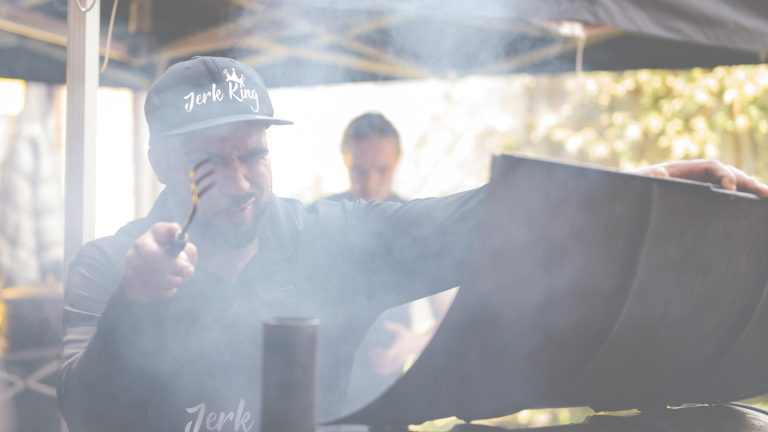
The fires are stocked and the people are hyped – load up the dub siren for the return of St Pauls Carnival.
Sun and rum-filled memories are being regaled, costumes embellished, sound system bass bins tested. The radiant glow bubbling from the inner city area signals the end to a frosty winter with the promise of vibrance and joy.
This year will mark the first full-scale Carnival since 2019, where over 100,000 people will flock to the heart of Bristol’s St Pauls on Saturday, 1st of July.
The theme this year will be ‘Learning From Legends’ – commemorating Caribbean trailblazers past, present and future: those who have paved the way, those continuing the legacy and the next-gen who will take on the mantle.
It will also mark 75 years since pioneering Caribbeans arrived in the UK via HMT Empire Windrush and joined the founding workforce of the NHS, as well as 60 years since the Bristol Bus Boycott.
Generations of skin in the game
The full return of Carnival is felt in the community with heightened significance. It’s in the veins of local residents of St Pauls, who literally have generations of skin in the game. People have grown up going to carnivals annually whether performing on stage or helping the family to sell food from their front garden.
With Carnival’s absence meaning disappointment for the wider audience, we have maintained a strong community focus with an events programme each year. We thought it was important to work closely with local elders – behind the spectacle of costumes and floats, Carnivals all over the world are a vessel for culture and tradition – a daisy chain of knowledge passed forward to each generation.
When taking part in a Carnival procession you inadvertently retrace the footprints of those who have set us on our course. In doing this, the past survives in us all.
This formed the backbone of my work in the last few years, which culminated in a digital literacy course to help elders stay connected with friends and family and a short documentary to tell their stories.
Working with members of the Malcolm X Elders’ forum and the Evergreens – two elders-led groups that meet up weekly in St Pauls and Easton – we set out to document their stories and encapsulate key aspects of history, heritage and cultural context in a short documentary, Inna Wi Carnival: Reflections of a Generation.
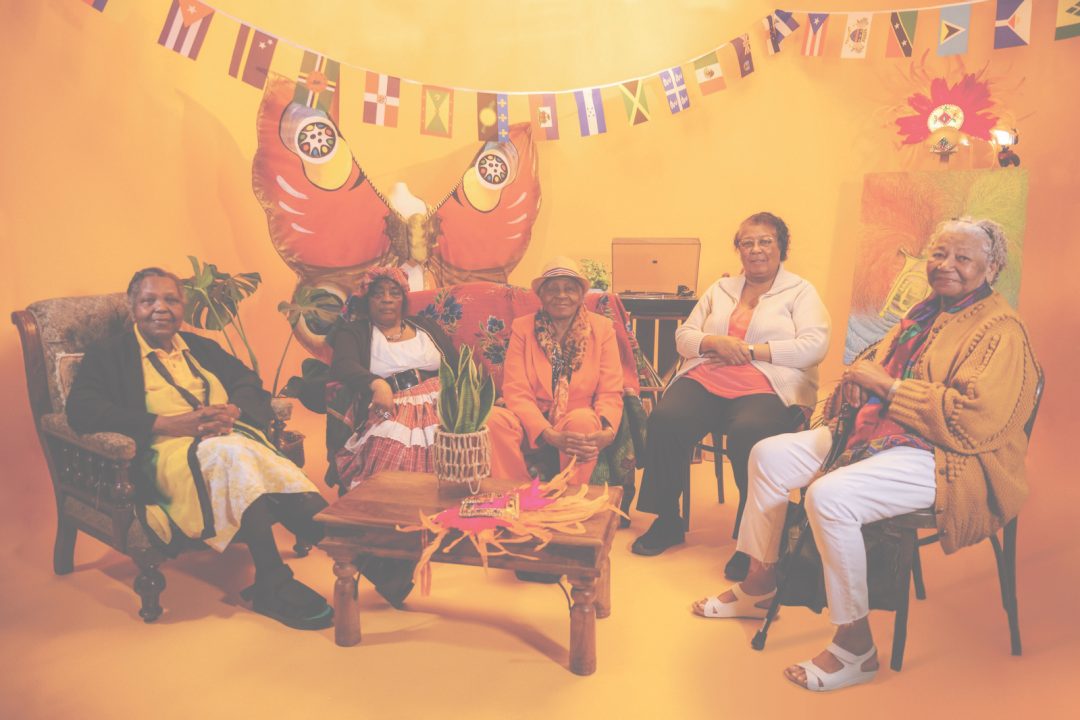
The conversations between longtime friends took trips down memory lane back to festivities at home in the Caribbean, adjusting to life in the UK, early Carnival memories and how they’ve seen it change over the years.
Barbara Dettering, who was part of the original Carnival organising committee, was among the group who spoke about Carnival’s role amid the continued plight of the Caribbean community, optimistically quoting, “Where there’s life, there’s hope.”
They also shared a meal courtesy of local trader Jerk King to symbolise the importance of solidarity and breaking bread that is so embedded in Caribbean culture. The film closes with a beautifully crafted poem by Bristol’s highly talented poet Malizah, who reflected on the stories from the day and the layers of what Carnival represents, and repeats the powerful phrase “back to us” – like a mantra reminding us that through Carnival we return to ourselves.
Resistance through Black joy
For me, St Pauls Festival (as it was known then) acted beautifully as an open-armed resistance to racial hostility, expressed through Black joy. A day where the community could subvert social norms of the time, be loud, proud and take up space.
Starting off in humble settings in 1968, it was organised by the West Indian Parents & Friends Association as a way of breaking down racial barriers by inviting outside communities into the St Pauls area to dispel the wrongfully placed and racially motivated stigmas that had been circulated at the time.
It feels irresponsible to suggest there is one definitive telling of Carnival, but through exploring the kaleidoscope of converging accounts of those who have lived it we can remain on course
It’s interesting to see how each generation since has brought its own ideas to the table, with following committees like the St Pauls Afrikan & Caribbean Carnival anchoring into more Afrocentric teachings and the local sound systems of the late 70s and early 80s making their way into regular programming.
Like with any successful endeavour Carnival has gained masses of popularity, incrementally growing in scale as a result, and paired with ever changing legal requirements in the events industry, the face of Carnival will appear different to those who have been there from the start.
With a rapidly growing audience, how can we ensure the preservation of the culture of St Pauls Carnival for the future generations who will one day carry the torch?
This year a fringe programme in June will lay the ground for the main event, exploring and bringing to life our ‘Learning from Legends’ theme, commemorating Windrush 75, and building anticipation for Carnival day, traditionally always the first Saturday of July.
With the clock ticking down, the team has been grafting hard behind the scenes to pull all the sprawling elements together. Earlier in the spring we launched our costume-making Mas Camp programme, started regular support sessions for people applying for Temporary Events notices, and have been hosting events at Docklands Community Centre to provide information on our activities and how to get involved.
Safeguarding Carnival’s cultural essence
Inna Wi Carnival: Reflections of a Generation and similar projects can play a vital role in engaging with multi-generations to ensure the message of Carnival and its legacy is preserved in delivering authentic Carnival experiences to future generations for years to come.
I think it’s through telling these stories that we can better safeguard Carnival’s core cultural essence. Oral storytelling has long been practised throughout African history and will continue to play a vital role in carrying information, conveying ideas and helping us understand each other’s experiences.
It feels irresponsible to suggest there is a singular and definitive telling of Carnival, but I think through exploring the kaleidoscope of converging accounts of those who have lived it we can remain on course.
Come 1 July we of course want people to come and enjoy the celebration in what, on the surface level, is one of the biggest street parties in the UK. For those who wish to look a little deeper, there’s an opportunity to engage with Carnival in a different way and appreciate the legacy it bears.
For many, St Pauls is home all-year-round. The celebration is for everyone, but it’s a gem of cultural heritage the Caribbean community has fought for – and that should not be overlooked.
Keziah Wenham-Kenyon is the director and producer of Inna Wi Carnival: Reflections of a Generation and community engagement coordinator with St Pauls Carnival CIC.

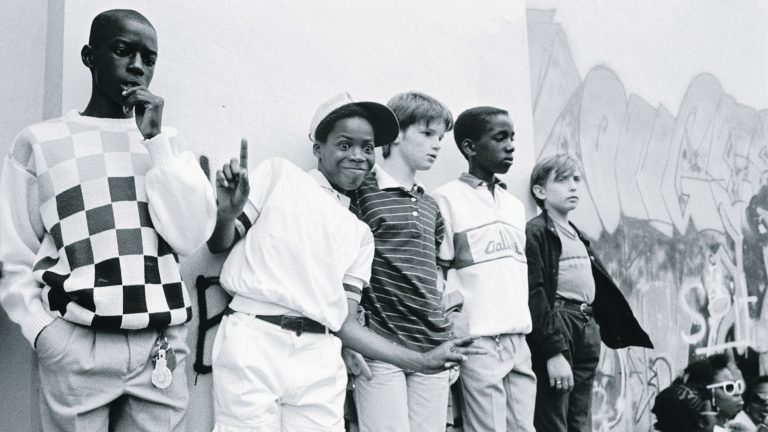

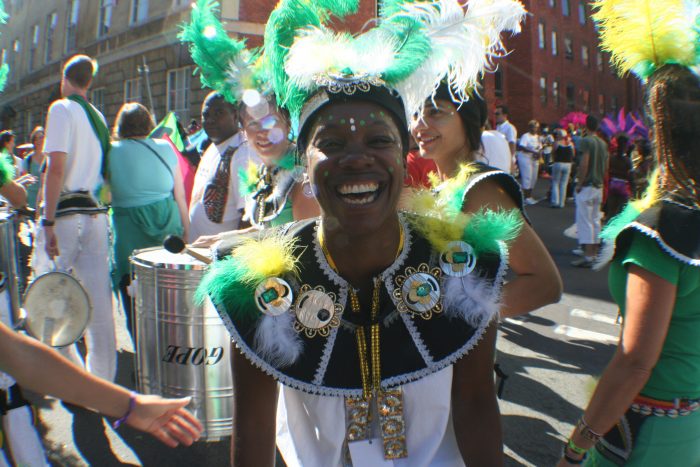
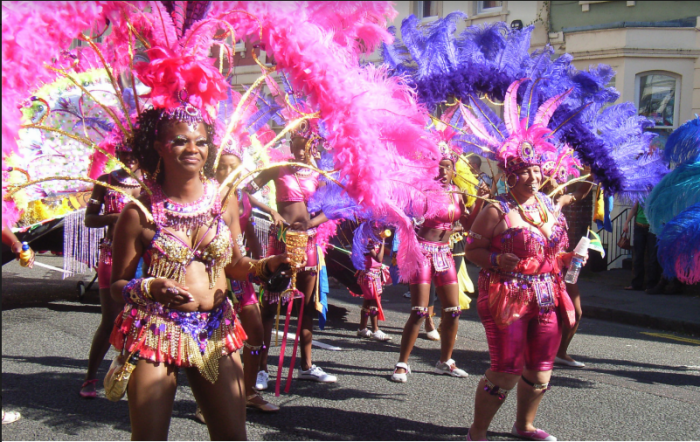
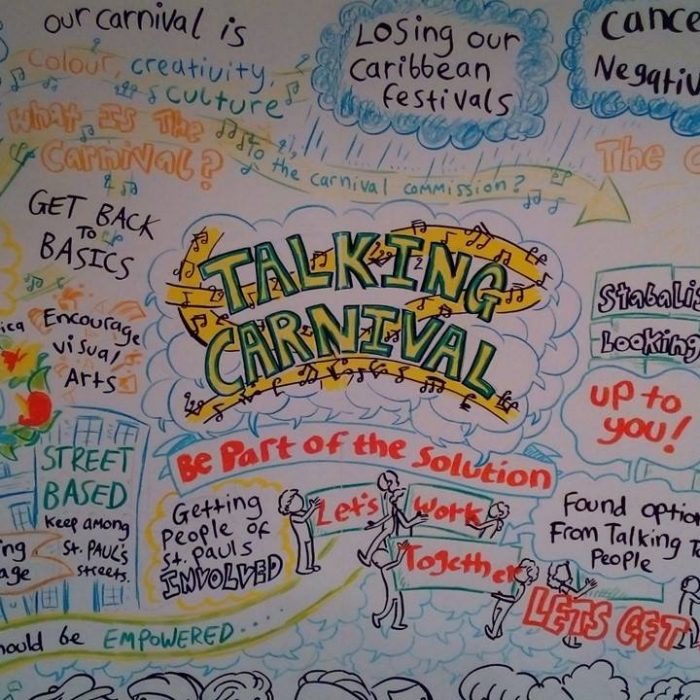
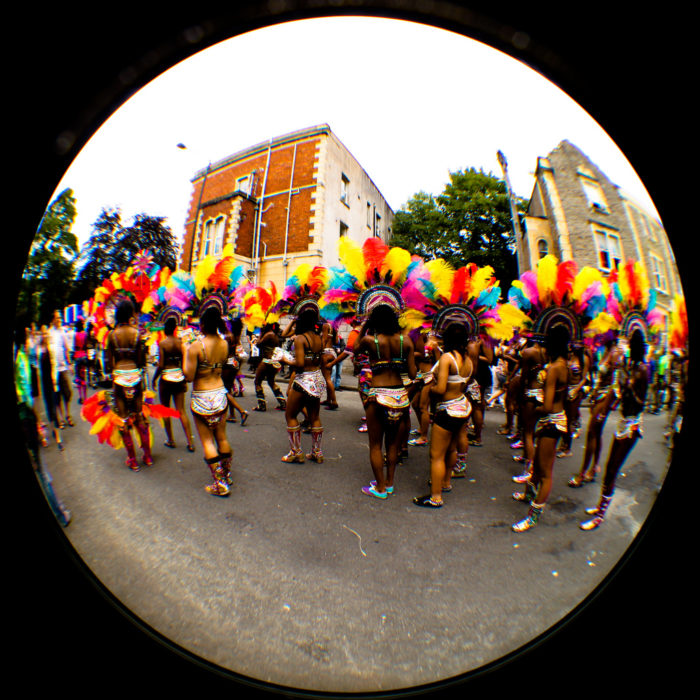
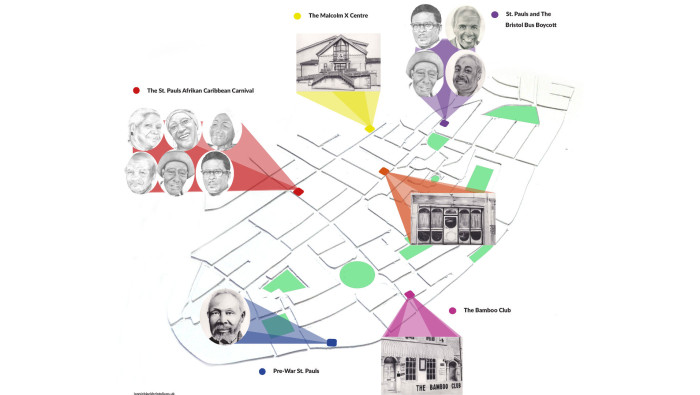

Report a comment. Comments are moderated according to our Comment Policy.
Isn’t it time the local residents were asked about continuing with carnival and the associated disruption it causes? Most of the local people I speak to dread it. All of St Paul’s and parts of Montpelier will be prohibited to cars and the car parking option isn’t really appropriate for elderly and/or disabled residents. Is it really necessary to close such a large area? Looking at the pictures from carnival it seems most attendees are white which rather belies assertions made in this pretentious article. Those of us who live here often have to clear up mess and rubbish chucked into their front gardens, basement lightwells etc. I have found syringes, numerous NOS cylinders, condoms, broken glass, urine and faeces on my property which I have to clear up. I doubt anyone from the carnival committee will volunteer. There is no way to contact carnival officials by phone or in person on the day in case of issues. This is a major oversight as I discovered last time out. A rogue trader decided to set up an ad hoc barbecue stand on my property. Nightmare trying to get hold of anyone ‘official’ to sort it out. And there was nobody to deal with an unofficial DJ and booze set up that continued long after 11pm.
I’ve been attending the St pauls carnival since 1997, and for me it’s the best one I’ve ever been to.
Born and raised in Hackney East london, we always do notting Hill, but st pauls vibe is my kind of vibe.
I love bristol and st pauls, and we always spend 3 nights over that weekend.
Manners and respect st pauls.
Kind regards Keith
I’ve been attending carnival for the the longest time now and to see different ethnicities come together is sooo beautiful, that you don’t consider any disruptions it might cause. I mean, this is a big crowd, you wouldn’t expect everything to run smooth, that would be unrealistic.
I love carnival as you get to meet new people and experience different cultures which is what we need in this day and age.